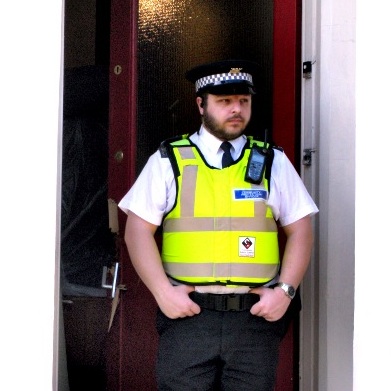Can my employees be disciplined for committing a criminal offence?
This guidance from the National Golf Clubs’ Advisory Association (NGCAA) looks at the legal standing of employers if their employees have committed a criminal act
We have had a few calls within the last year to ask about how to deal with an employee who has committed a criminal offence. We thought it useful to set out the basics for our members, but we recognise that it can be a tricky situation, so please contact NGCAA if you have any questions about a particular situation.
There are two likely scenarios with employees committing offences: one is where the offence is committed at work and the other is where it is committed outside of work. We look at both here:

Offences at work
Where an employee commits a criminal offence at work, a club is likely to be justified in following its disciplinary procedure and treating it as misconduct. There is no absolute obligation on a club to report every employee misdemeanor to the police, but it could certainly count against a club if it was seeking to dismiss an employee for something like theft or violence if it did not also report the matter to the police. The important point, though, is that the club would not be required to await the outcome of a criminal investigation and court case before finalising the matter within its own disciplinary process. The club would look at the evidence that it has within the employment sphere and decide upon a sanction based upon that evidence and the representations from the employee within a disciplinary hearing.
Remember, also, that within the employment sphere that the standard of proof is not the same as for criminal courts where the court or jury would decide the case against a standard of ‘beyond all reasonable doubt’. If a club is making a decision on a misconduct matter then it would need to establish, having carried out a fair and reasonable investigation, that it genuinely and reasonably believed that the employee had committed the offence in question. Is it reasonable for a club to dismiss in these circumstances? It is possible to dismiss fairly for misconduct even though, by the time of a tribunal hearing, an employee is acquitted by a criminal court.

Offences outside of work
Criminal offences committed away from work can also justify dismissal – the key point is whether the offence is one that makes the employee unsuitable for the type of work that they do for the club. Clubs will need to consider whether the conduct is sufficiently serious to warrant disciplinary action.
Criminal conduct outside of the workplace must therefore affect the employee’s suitability to continue working for the employer. This is likely to depend on the nature of the offence, the nature of the work undertaken by the employee, the extent to which it involves contact with other employees or the public and the status of the employee.
Examples would include an employee charged with or convicted of theft when they hold a position of trust and / or work with money; an employee charged with or convicted of sexual offences when they work with vulnerable people; there may also be issues of a club’s reputation to consider if the matter is widely known or reported in the press.

It is still important to follow internal procedures, such as holding a disciplinary hearing to allow the employee an opportunity to state their case. If an employee has been found guilty by a criminal court, whether or not they pleaded guilty, it would be reasonable for a club to conclude without further proof that the offence has been committed by the employee BUT, the club should still seek to hold a hearing before making its decision – there may be important representations from the employee, for example, which affect the sanction imposed.
Where a criminal investigation or proceedings are ongoing, clubs will usually have a wide discretion as to whether or not to carry out internal disciplinary proceedings at the same time, or whether to wait until the criminal proceedings are completed. This is particularly so if to continue with the internal proceedings may prejudice the criminal proceedings.

In conclusion, care should be taken by clubs if an employee commits an offence within or outside of work. Many would think that a criminal offence automatically justifies a dismissal, but it is of great importance that a club considers why it is dismissing in these circumstances in order to correctly justify its decision making if the matter ever comes up in the employment tribunal.
If any club has an issue on the above, please don’t hesitate to contact NGCAA for advice.
The NGCAA provides support, advice and guidance – from start to resolution – on all legal matters impacting upon both proprietary and private members’ golf clubs in membership. The NGCAA can assist with any legal issues that a club may encounter, including the following: employment law; disability / equality; club constitution, voting procedures; discipline of members; CASC; social media / Wi-Fi; neighbour disputes; redundancy; training; licensing and hospitality; membership disputes; articles of association; club rules / byelaws; consumer credit; data protection; PRS / PPL; property lettings and policy reviews

Jackie Howe, the chief executive, is based in the office and is on-hand to offer advice and support. She is backed up by a team of specialist solicitors to assist in legislative guidance for clubs.
The National Golf Clubs’ Advisory Association (NGCAA)
The Threshing Barn, Homme Castle Barns,
Shelsley Walsh, Worcestershire, WR6 6RR
Tel: 01886 812943
email info@ngcaa.co.uk















Let me tell You a sad story ! There are no comments yet, but You can be first one to comment this article.
Write a comment